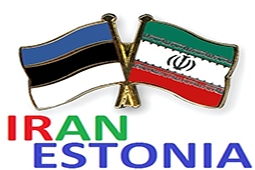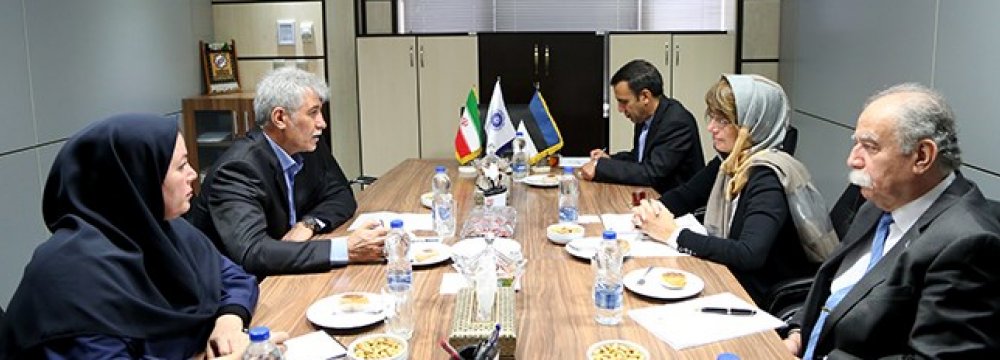
Iran, Estonia Address Low Level of Bilateral Trade


"Political ties between Iran and Estonia are at a good level, but the level of trade is unsatisfactory," Karbasi was quoted as saying by the official news website of ICCIMA on Wednesday.
"This is while bilateral trade remained low in spite of the fact that there was political will to boost bilateral ties between 2015 and 2017," the private sector representative said.
"Iran-Estonia trade stood at a meager $4.3 million in 2017. The volume has plummeted to even worse levels and stands just above $1 million in 2018."
According to Karbasi, chemicals, textiles, food, fisheries, shipbuilding, electronics, renewable energies, biotechnology, nanotechnology and tourism are areas in which the two countries can boost bilateral ties.
He referred to barriers on the way of private sectors as a major issue that needs to be resolved, but also pointed out that lack of direct flights, in addition to banking and financial problems, are also very problematic.
"The Iran Chamber of Commerce is fully ready to cooperate with Estonia and form a joint Iran-Estonia committee," Karbasi said.
Mottus said her goal of going to ICCIMA was to exchange information and discuss ways of supporting bilateral trade.
She agreed that the volume of bilateral trade remains unsatisfactory, noting that existing capacities show that the two countries will improve cooperation.
"In addition to chambers of commerce, expert associations in the aforesaid fields are capable of assisting traders to expand ties," she said, explaining that establishing direct flights is not an option at present since Estonia's air routes are underdeveloped.
She did, however, note that Estonia is a leading country in terms of electronic services and electronic banking, which can pave the way.
"Providing detailed information to traders interested in working with Iran could be the best way to go under the current circumstances," she said.
Mottus said a majority of small- and medium-sized enterprises in Estonia have yet to grasp a full image of Iran and therefore require incentives.


Trump weighs using $2 billion in CHIPS Act funding for critical minerals

Codelco cuts 2025 copper forecast after El Teniente mine collapse

Electra converts debt, launches $30M raise to jumpstart stalled cobalt refinery

Barrick’s Reko Diq in line for $410M ADB backing

Abcourt readies Sleeping Giant mill to pour first gold since 2014

Nevada army depot to serve as base for first US strategic minerals stockpile

SQM boosts lithium supply plans as prices flick higher

Viridis unveils 200Mt initial reserve for Brazil rare earth project

Tailings could meet much of US critical mineral demand – study

Kyrgyzstan kicks off underground gold mining at Kumtor

Kyrgyzstan kicks off underground gold mining at Kumtor

KoBold Metals granted lithium exploration rights in Congo

Freeport Indonesia to wrap up Gresik plant repairs by early September

Energy Fuels soars on Vulcan Elements partnership

Northern Dynasty sticks to proposal in battle to lift Pebble mine veto

Giustra-backed mining firm teams up with informal miners in Colombia

Critical Metals signs agreement to supply rare earth to US government-funded facility

China extends rare earth controls to imported material

Galan Lithium proceeds with $13M financing for Argentina project

Kyrgyzstan kicks off underground gold mining at Kumtor

Freeport Indonesia to wrap up Gresik plant repairs by early September

Energy Fuels soars on Vulcan Elements partnership

Northern Dynasty sticks to proposal in battle to lift Pebble mine veto

Giustra-backed mining firm teams up with informal miners in Colombia

Critical Metals signs agreement to supply rare earth to US government-funded facility

China extends rare earth controls to imported material

Galan Lithium proceeds with $13M financing for Argentina project

Silver price touches $39 as market weighs rate cut outlook

















